The Superintelligence Countdown on the AI Horizon
TECHNOLOGY
AI is evolving at an unprecedented pace, with the rise of agentic AI systems to the surge in humanoid robots, multimodal AI, and high-performance computing. Innovations like Nextatlas' Generate Suite, with its autonomous AI agents, exemplify the shift toward decentralized, minimal-oversight, and superintelligent AGI.

The Unstoppable Acceleration Towards Superintelligence
Artificial intelligence has been evolving at an unprecedented pace, and as we enter 2025, it’s clear that the race toward superintelligence is accelerating. From the rise of multi-agent AI to humanoid robots and multimodal AI, the technological landscape is shifting rapidly.
While concerns about AI replacing humans persist, this transformation is also unlocking new creative possibilities, as seen in explorations of latent space—where AI researchers and artists push the boundaries of creativity and discovery.
AI's Growing Momentum: Key Trends Driving the Countdown
1. Agentic AI & Imitation Learning: The Shift Towards Autonomous Systems
Agentic AI—where AI acts independently with minimal human oversight—is predicted to grow by +28% over one year according to our analysis, reinforcing the shift towards more autonomous digital workers. Similarly, imitation learning in robotics, which enables machines to learn complex behaviors by observing humans, is setting the stage for more adaptive, human-like automation.
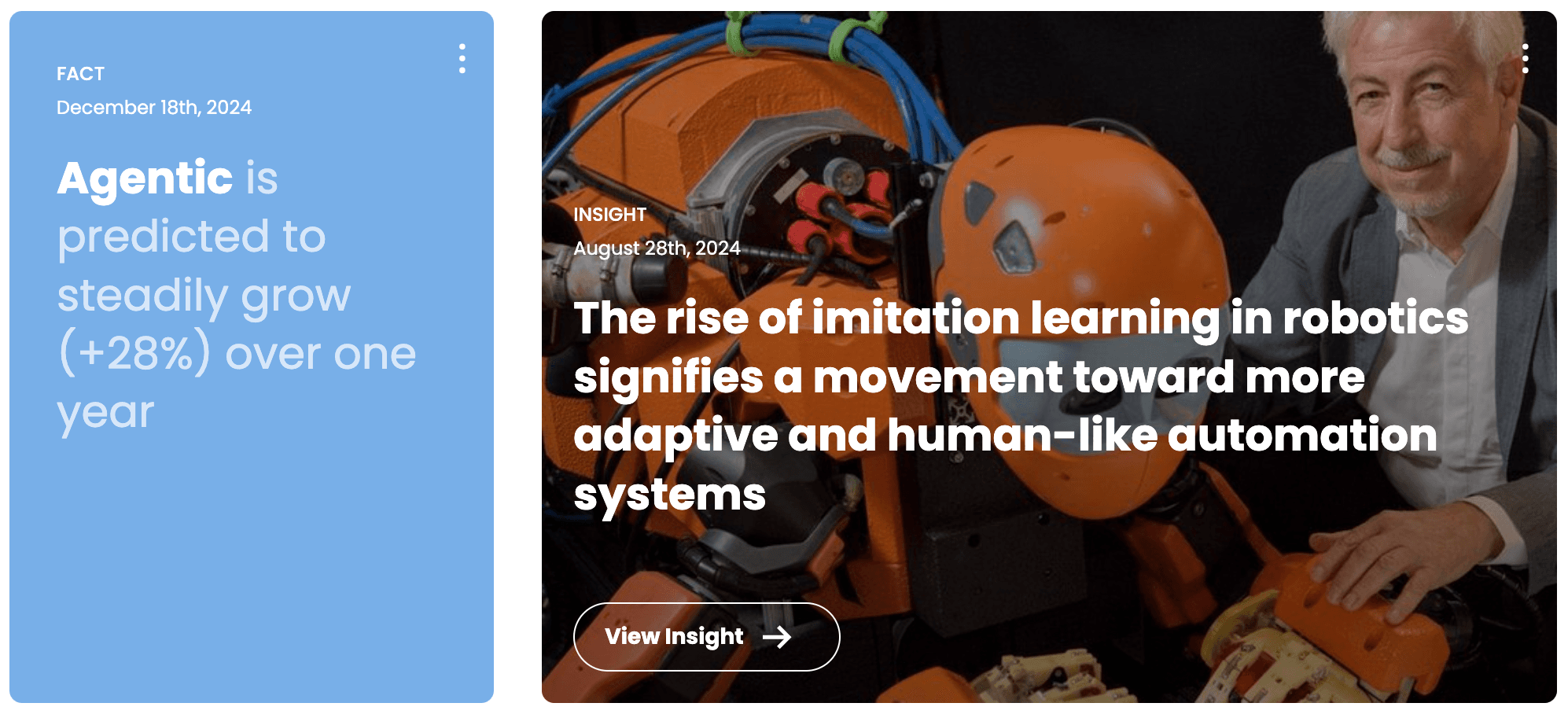
Related fact and insight on the Nextatlas platform (screenshot taken in March 2025)
2. Multi-Agent AI: A Step Towards Autonomous Intelligence
Multi-agent AI has been on a steady rise, with our projections showing a +66% growth over the next year. These intelligent systems, capable of coordinating and making decentralized decisions, are pushing AI towards higher levels of autonomy. Multi-agent collaboration is critical for real-world applications like swarm robotics, financial trading, strategic game-playing, and market research.
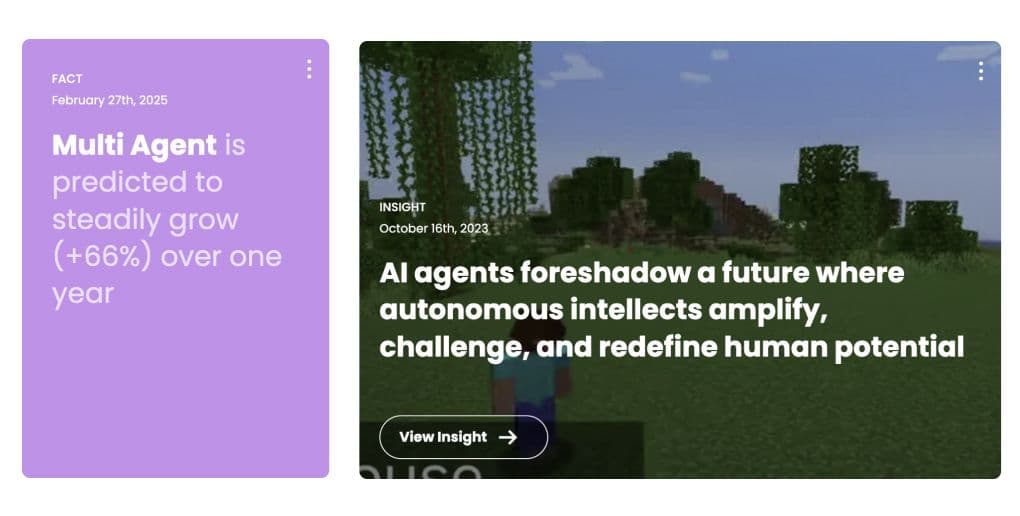
Related fact and insight on the Nextatlas platform (screenshot taken in March 2025)
Nextatlas' Generate Suite exemplifies the convergence of agentic AI and multi-agent AI trends, offering a suite of specialized AI agents that operate with minimal human oversight to deliver deep insights into market trends and consumer behaviors. These agents, such as the Persona Generator and Sentiment Pulse, autonomously analyze vast datasets, enabling businesses to swiftly adapt to evolving market dynamics.
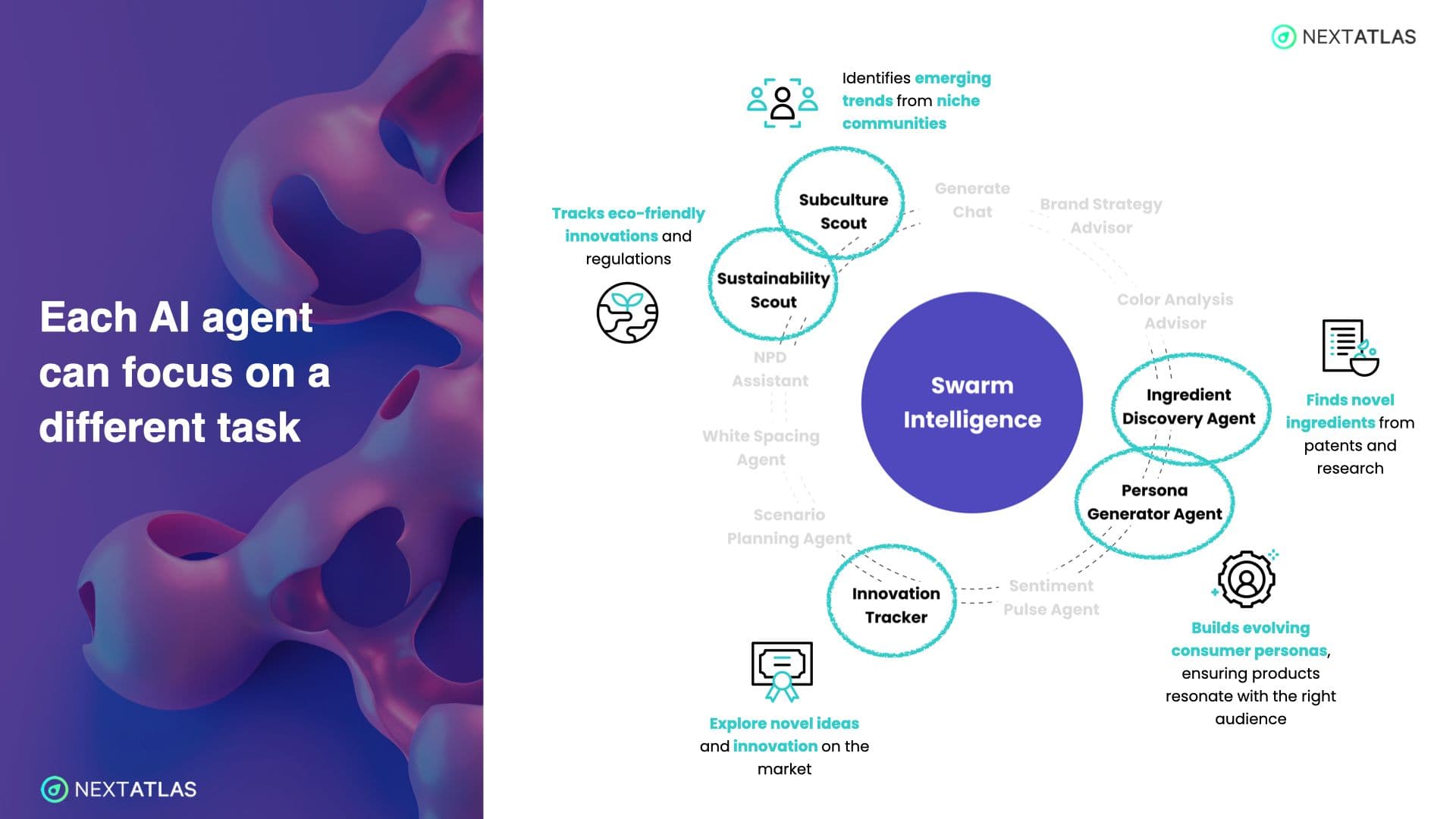
Generate Suite's AI agents work in a swarm intelligence but yet work independently for specific functions. Slide taken from Greenbook's IIEX.AI event in 2024 where Nextatlas spoke about the potential of agentic AI.
By integrating advanced natural language processing and machine learning, Generate Suite's AI agents collaborate to provide a comprehensive understanding of emerging trends, reflecting the growing prominence of autonomous, multi-agent systems in the AI landscape.
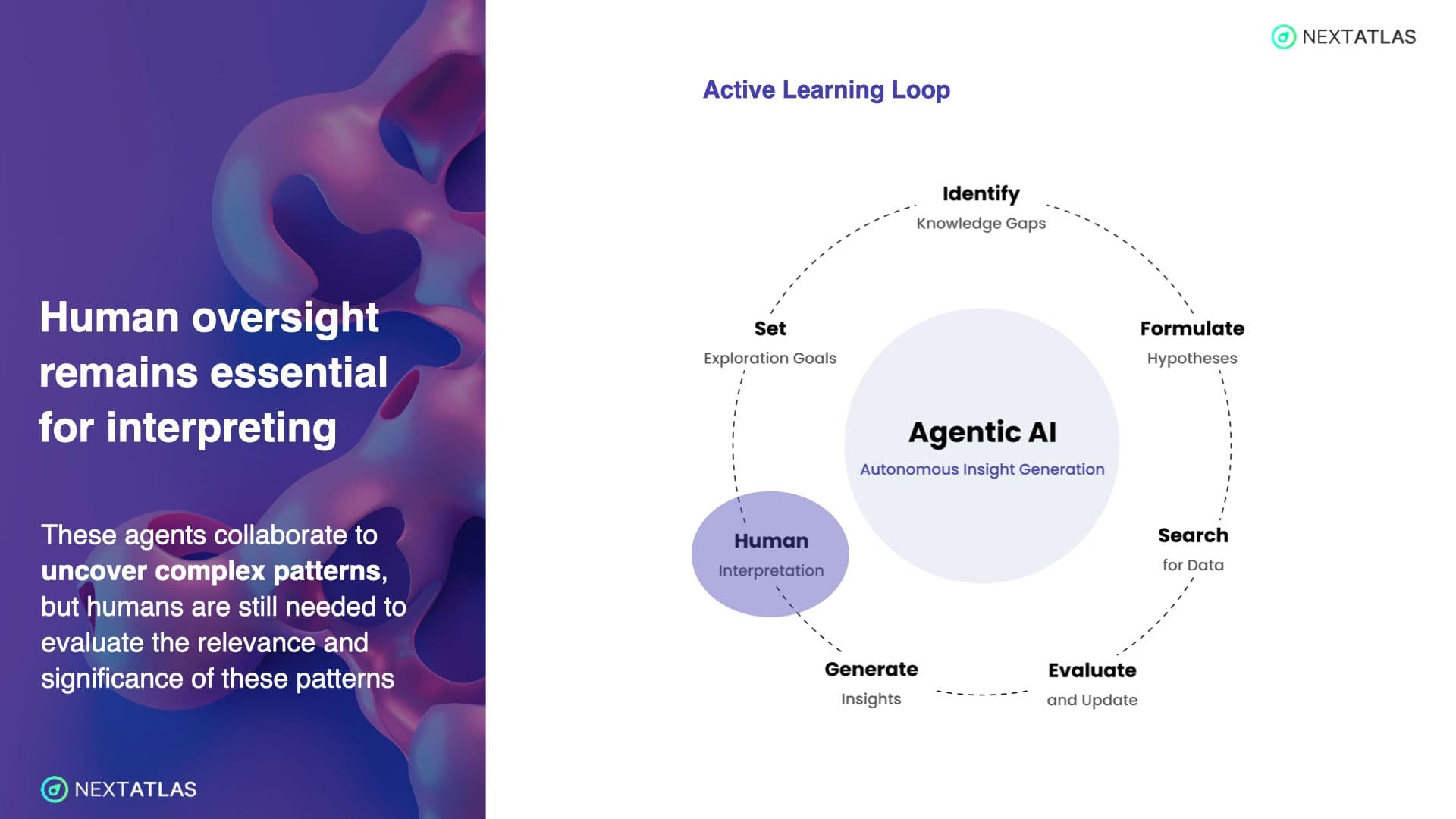
How Generate Suite's agentic AI works. Slide taken from Greenbook's IIEX.AI event in 2024 where Nextatlas spoke about the potential of agentic AI.
3. The Surge of Humanoid Robots & Human-Level Intelligence
In the last year alone, Humanoid Robots have surged by +203% in our early adopter conversations, signaling a strong push towards machines that not only think but move and interact like humans. Human-Level Intelligence saw a 171% increase in Q3 2024, further intensifying debates around automation and the ethics of AI-driven workforces, while also advancing conversations about the relationship humans will have with this new AI technology.
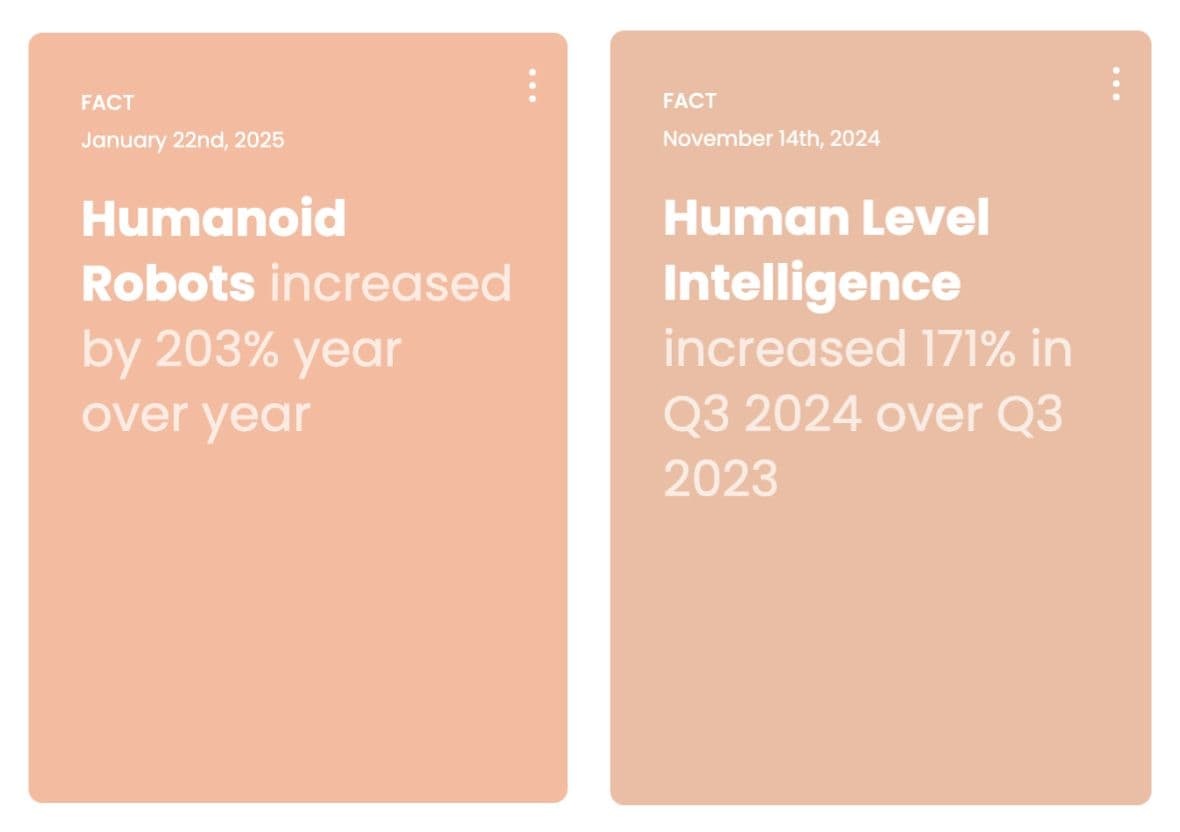
Related facts on the Nextatlas platform from our early adopter conversations (screenshot taken in March 2025)
The concept of synthimacy—a blend of 'synthetic' and 'intimacy'—captures the evolving relationship between humans and AI, where emotional connections are formed with artificial entities. This phenomenon is becoming increasingly prevalent as AI systems, such as virtual companions and chatbots, are designed to emulate human-like interactions, fulfilling users' emotional and social needs. We predict that synthimacy will grow by +52% over one year (you can read more about it in this Ding! The Blooming Trend article in our partner’s Instituto Marangoni’s Maze65).
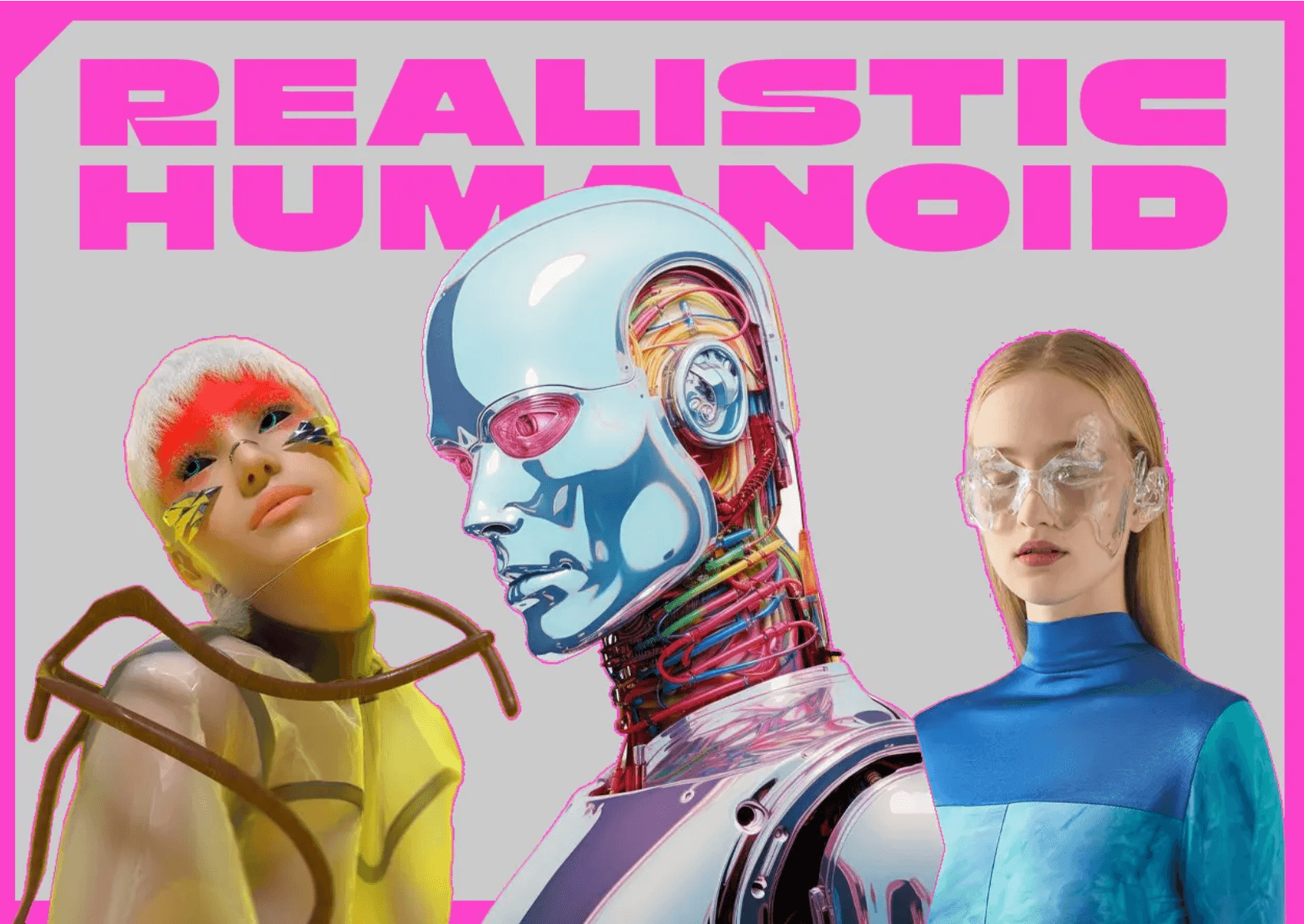
Credit: Instituto Marangoni's Maze65 Ding! The Blooming trend
The rise of synthimacy not only reflects advancements in AI's ability to understand and replicate human emotions but also raises questions about the nature of relationships in an AI-integrated society.
4. The Rise of Multimodal AI: A More Intuitive AI
Multimodal AI, which integrates multiple data types (text, image, audio, and video), is transforming industries. This approach enhances AI’s ability to generate more nuanced and context-rich outputs, improving applications in fields like healthcare, entertainment, and business intelligence.
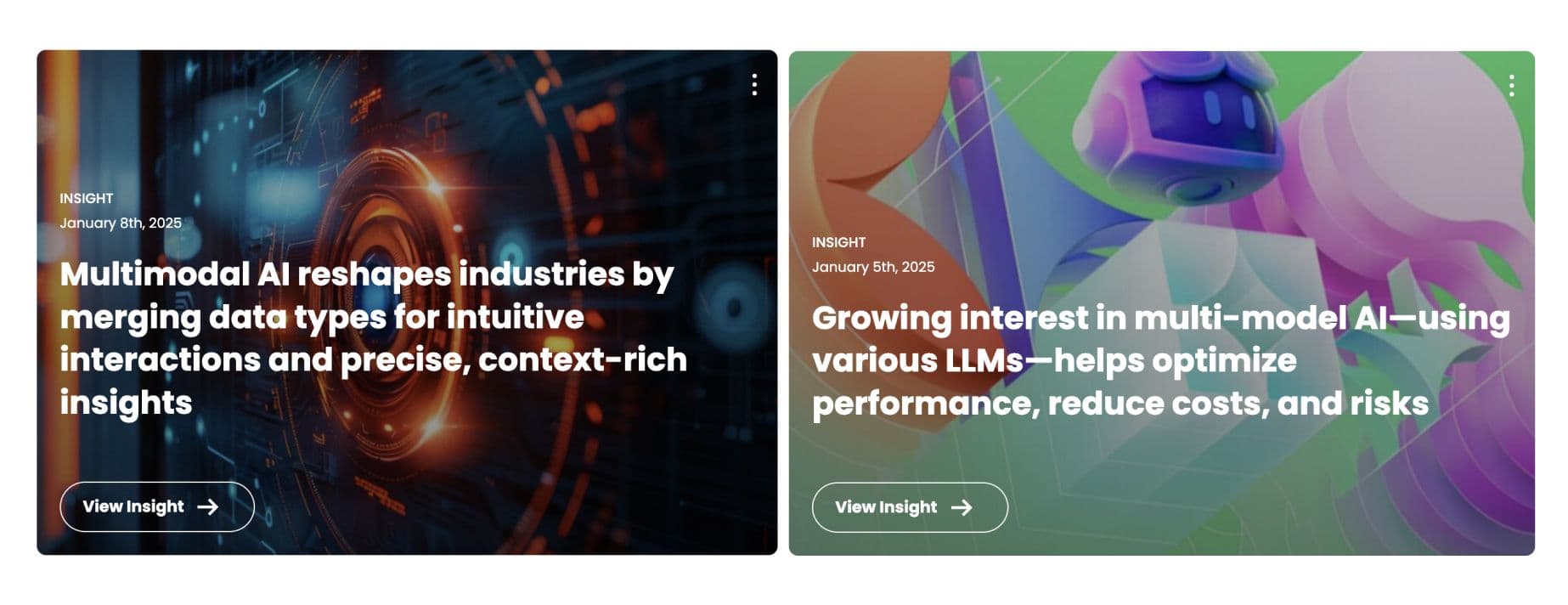
Related insights on the Nextatlas platform (screenshot taken in March 2025)
A notable example of multimodal AI is Artera's Multimodal Artificial Intelligence platform, which integrates vast datasets of patient records and biopsy images to develop customized treatment plans for prostate cancer. By analyzing both textual and visual data, Artera's AI system predicts the most effective therapy for individual patients, balancing the risks of over-treatment and under-treatment. This approach has been recognized by the National Comprehensive Cancer Network, endorsing it as the official standard of care for prostate cancer.
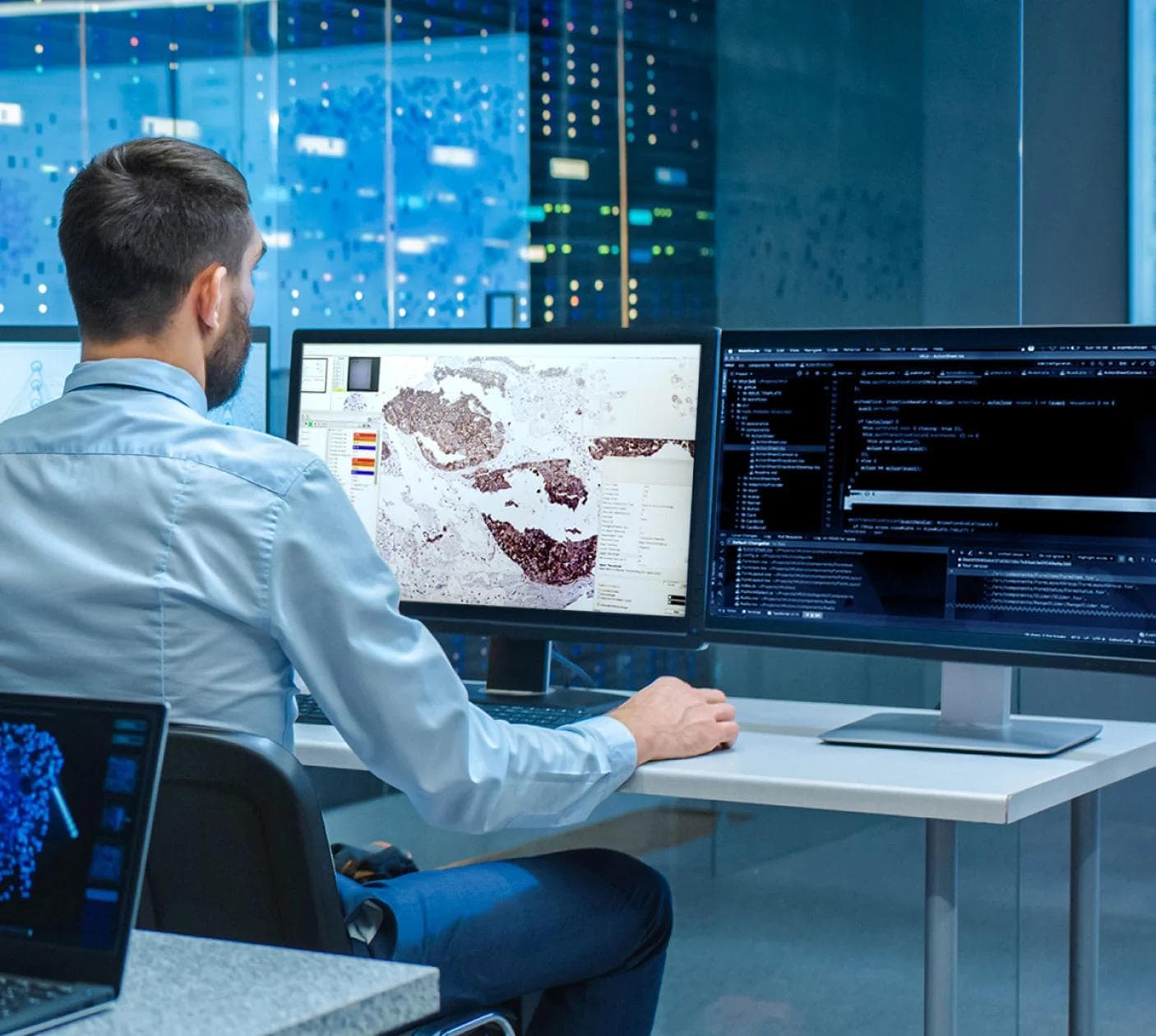
Credit: artera.ai
5. The Power of High-Performance Computing & World Models
The High-Performance Computing (HPC) market is predicted to grow by 57% in the coming year. This computational leap is fueling AI advancements, enabling faster training of massive models, and bringing us closer to Artificial General Intelligence (AGI). Meanwhile, the development of world models in AI is gaining traction, allowing machines to predict, plan, and adapt autonomously—key capabilities for achieving higher intelligence.
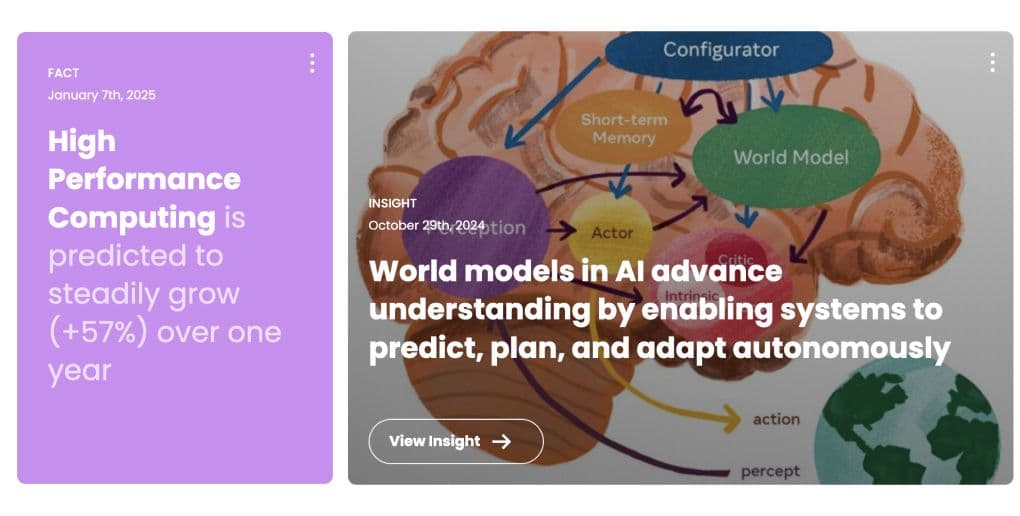
Related fact and insight on the Nextatlas platform (screenshot taken in March 2025)
In March 2023, DeepMind introduced "Genie," an AI model capable of generating interactive virtual worlds based on textual descriptions, images, or sketches. This autoregressive latent diffusion model allows for frame-by-frame interactivity without requiring labeled action data for training. Its successor, "Genie 2," released in December 2024, expanded these capabilities to generate diverse and interactive 3D environments. These advancements enable machines to predict, plan, and adapt autonomously, key capabilities for achieving higher intelligence.
The Ethical and Societal Reckoning
As AI systems grow more advanced, discussions around singularity—the hypothetical moment when AI surpasses human intelligence—are becoming more urgent. Ethical dilemmas about autonomy, decision-making, and AI’s role in society are at the forefront of debates.
The fear of obsolescence is rising, not just in creative spaces like art but in the business world as well, with many questioning how AI’s exponential growth will reshape the job market and human identity itself. Advancements in AI capabilities have led to the automation of tasks previously thought to be secure, such as drafting legal documents and creating mental health protocols. Balancing AI advancements with preserving job security is the challenge. The key demographics from our early adopter conversations are seniors and Generation X.

Related fact and insights on the Nextatlas platform (screenshot taken in March 2025)
Geoffrey Hinton, often referred to as the "godfather of AI," resigned from Google in 2023 to freely express concerns about the dangers of AI, including the risk of AI systems becoming uncontrollable and potentially leading to human extinction.
Just this year, Altman and Musk expressed profound concerns about the rapid advancement of artificial intelligence, likening the current moment to an "Oppenheimer moment.” Altman and Musk have advocated for proactive measures to ensure AI technologies are developed and deployed safely to prevent potential misuse and to safeguard humanity's future. This analogy underscores the ethical and societal reckoning facing the AI community as it navigates the delicate balance between innovation and responsibility.

Credits: Jim Lo Scalzo/EPA, via Shutterstock
The Road to Superintelligence: What’s Next?
The AI landscape is evolving faster than ever, with major breakthroughs bringing us closer to Artificial General Intelligence (AGI). Whether through multi-agent collaboration, high-performance computing, or world models, the countdown to superintelligence is undeniably on.
In 2023, Microsoft researchers observed that GPT-4 exhibited more general intelligence than previous AI models, demonstrating human-level performance across various domains, including mathematics, coding, and law. This sparked debates on whether GPT-4 could be considered an early, albeit incomplete, version of AGI. Similarly, DeepMind's CEO, Demis Hassabis, envisions achieving AGI by 2030, believing that, if applied correctly, AI will become the most beneficial technology.
These advancements prompt critical questions about our preparedness for the dawn of AI-driven superintelligence. As we move forward, it is imperative to consider not only the technological milestones but also the ethical, societal, and regulatory frameworks that will guide the integration of AGI into our world. Ensuring that this powerful technology aligns with human values and serves the greater good remains a paramount challenge.
As we move forward, one critical question remains: Are we ready for the dawn of AI-driven superintelligence? And more importantly—how do we ensure that it benefits all of humanity?

Trend lines, data, and information described in this article emerge from the ongoing analysis performed by Nextatlas on its global observation pool made of innovators, early adopters, industry insiders expressing their views on Twitter, Instagram, and Reddit.
To learn more about our AI, discover Nextatlas Methodology here
Related articles:
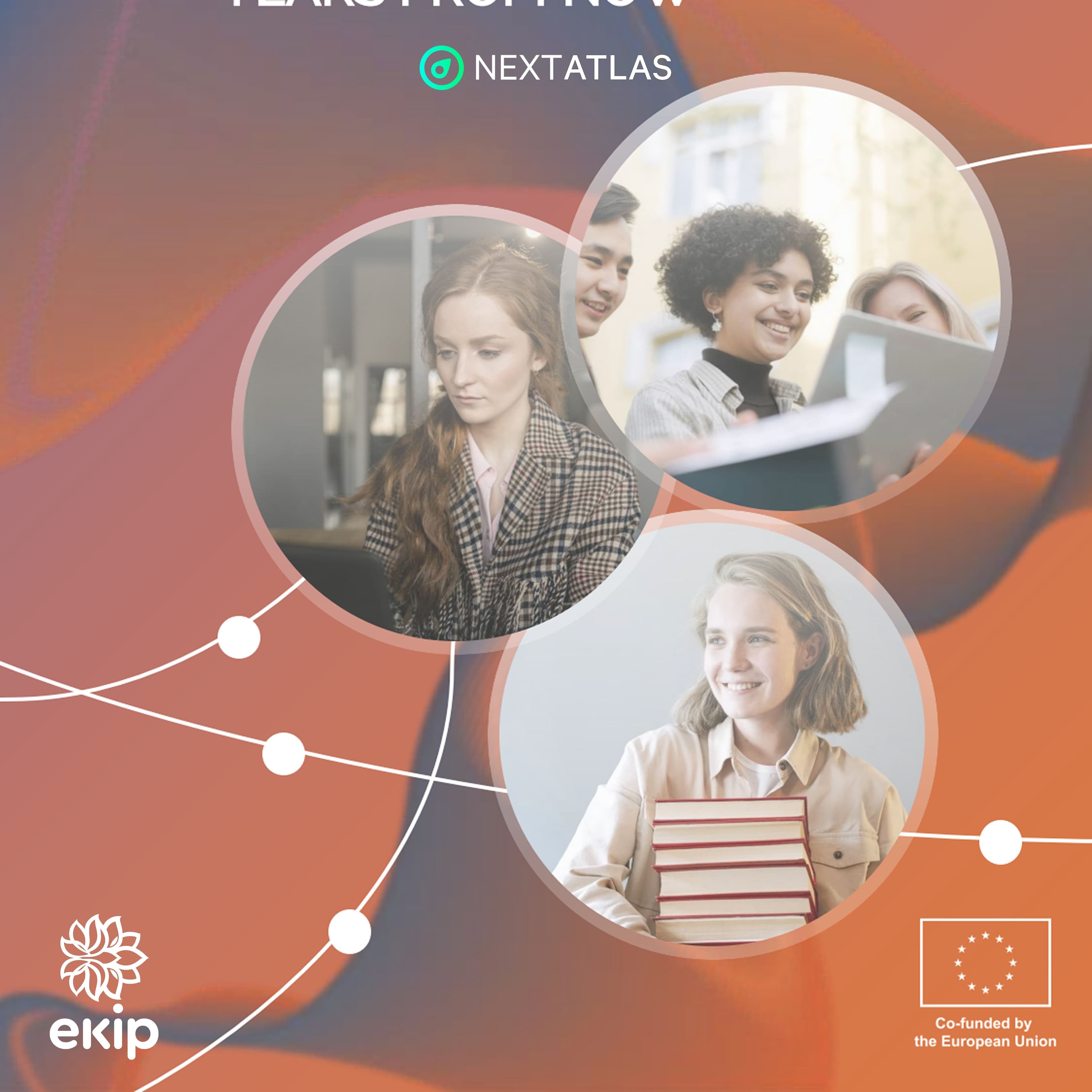
NEXTATLAS x EKIP
Tomorrow’s Creative Careers: How Backcasting Helps CCIs Navigate What’s Next
Italy
Torino - Via Stampatori 4, 10122(Operational headquarter)+39 011/0864065VAT number and registration number at the Registro delle Imprese di Cagliari: 03428550929 paid share capital € 167.740,00 — © 2024 iCoolhunt SpA.


